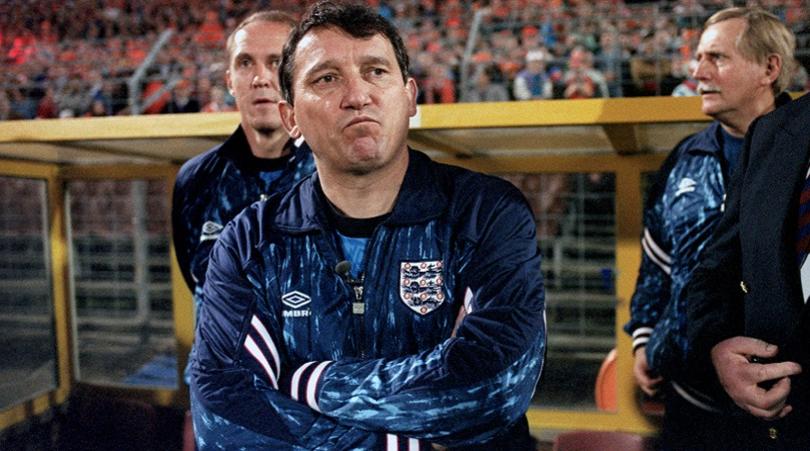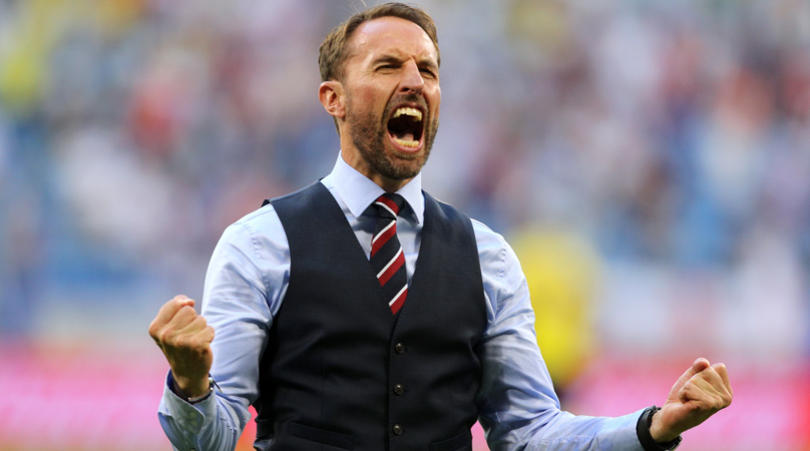22 things England need to do to win in 2022
After reaching the semi-finals in Russia, England’s quest to win in four years begins now. The key to glory in Qatar? Loads of unicorns, Martin Allen, and figuring out what the hell’s going on with the UEFA Nations League...
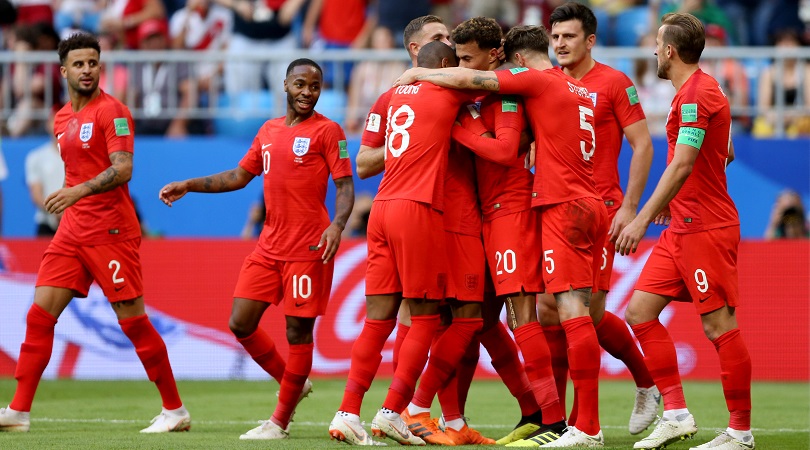
1. Add depth to the squad
England’s first XI reached the last four this summer, but the Three Lions lost twice to Belgium when fringe players were introduced.
“When I played for England there was so much depth,” former England defender Jamie Carragher tells FourFourTwo. “Even just at centre-back, there was John Terry and Rio Ferdinand – the two best in that position, winning Champions Leagues and Premier League titles. There was Sol Campbell before them, playing for an Invincible Arsenal side, Jonathan Woodgate going to Real Madrid, Ledley King, one of the best defenders Spurs ever had, and myself at Liverpool.
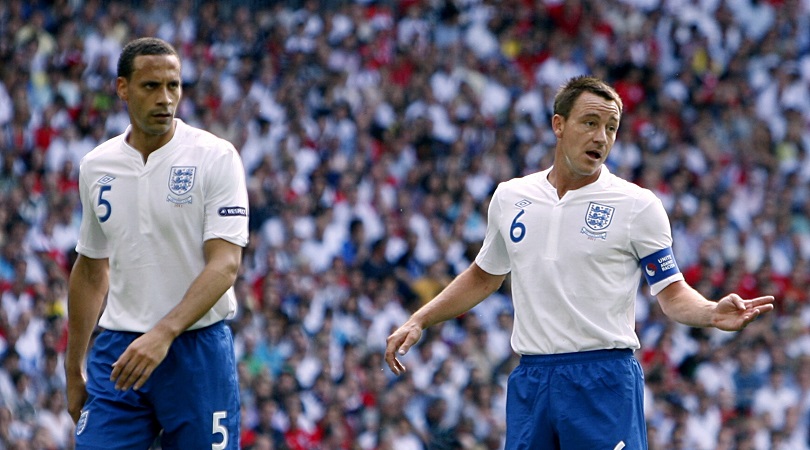
“They called that team the Golden Generation for the amount of top players we had. There isn’t as much depth to this squad, but they’ve still performed better than the squads I was in.
“Hopefully England doing well this year will give the clubs confidence to say, ‘England players are as good as anyone and can compete at the top level’. The academies are producing more technical players.
“Secondly, many of the players came through at lower-league teams and I think we may find younger lads opting to play for a Championship side, knowing they can break through – and this may lead them through the age groups into the England team. If players aren’t stagnating and are moving up the England levels as their careers go on, that keeps them progressing – and that could increase squad depth.”
2. Trust the unlikely leader
Get FourFourTwo Newsletter
The best features, fun and footballing quizzes, straight to your inbox every week.
Aime Jacquet in 1998, Vicente del Bosque in 2010 and Joachim Löw in 2014 – all World Cup-winning managers who enjoyed a Gareth Southgate-like surge to national prominence (admittedly Del Bosque won everything with Real Madrid first, but they blatantly regarded him as some sort of quasi-caretaker). Each had at least four years in charge before they lifted the World Cup, having been given time to plan for the long term.
After his previous job behind the scenes, Southgate is the perfect man to oversee England’s next project - so it's good news that he recently signed a contract extension taking him through to 2022.
3. Send for the wingers
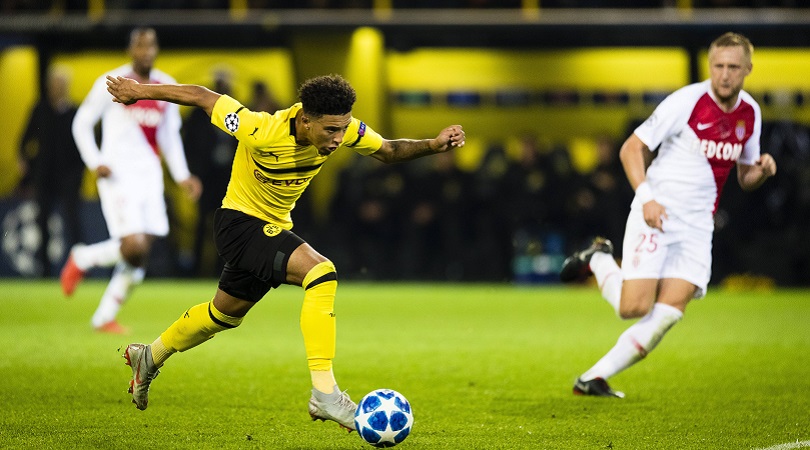
Although hopeful punts aren’t the answer – rest assured there will be calls for a more direct style if England’s new direction falters – the Three Lions don’t want to become Arsenal. Or Arsene Wenger’s one-trick Arsenal, anyway.
Three at the back plays to England’s current strengths, but umpteen defenders is pointless when you’re facing bus-parking minnows. With Kyle Walker in that three it’s a straightforward switch to a four; you just need a couple of decent wingers to change the attacking angles.
4. Don’t rely too much on Harry Kane
Tottenham’s talisman won the Golden Boot, but there’s a need for more goals in open play from others.
“The beauty of the World Cup was that England were unpredictable, for the first time in a generation,” says Darren Anderton, a midfield scorer for the Three Lions at the 1998 World Cup. “Runners from midfield and the goals from set-pieces made England one of the most dangerous sides at the tournament. Harry’s goals topped it all off. The main thing is getting more support from those around him.
“What’s definite, in my eyes anyway, is that he and Raheem Sterling already have a near-perfect partnership. Raheem needs to add goals to his England game. He was constantly stretching defences in Russia and, despite not scoring, it’s clear how much he’s valued by this side and by Harry in particular. They need to keep playing together as they may end up becoming a lethal combination.
“It would help if Dele Alli scored more, as well as Jesse Lingard. Their movement and running was class. By 2022 they should be even better.”
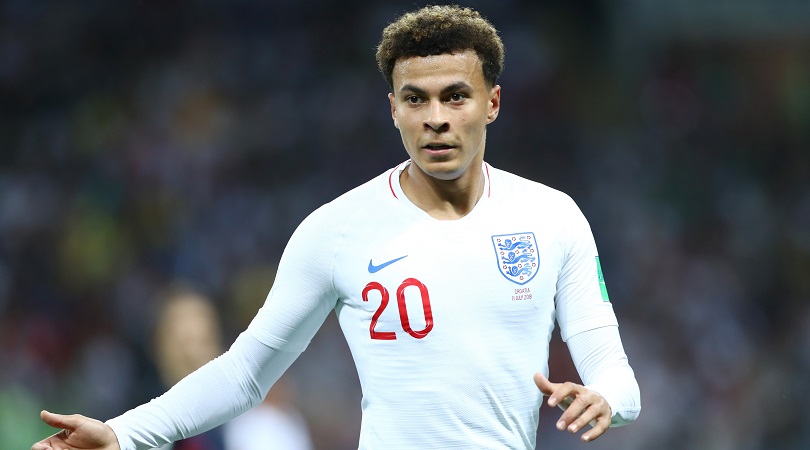
5. Decode the UEFA Nations League
SEE ALSO UEFA Nations League explained: how does it work?
Let’s face it, no one loved international week when it was just meaningless friendlies. We enjoyed the opening round of UEFA Nations League fixtures, even if the format is mind-bendingly complicated and nobody’s sure how it actually works.
Facing top-class opposition - Southgate's side host Croatia on Friday, before travelling to Spain on Monday - can only be a positive. Considering England’s competitive record against the leading nations still isn’t great, victories in the Nations League would be useful as they bid to beat the world’s best when Qatar comes around.
6. Round-the-world flu treatment for Laurence Maguire
We’re just as superstitious as any player, so what worked in Russia must continue. That means the boss dislocating his shoulder during every major tournament – it’s for the greater good, Gareth – and Harry Maguire’s family going to every game, regardless of whether the gigantic Yorkshireman is even playing.
Chesterfield gaffer Martin Allen gave Maguire’s brother permission to travel to the World Cup, insisting defender Laurence had Russian flu that could only be treated in the Samara region. He’ll need more treatment in Rijeka and Seville over the next couple of months, before the inevitable onset of the Qatari mumps some time around 2022. With these human equivalent of lucky gonks in tow, plus Ashley Young sticking the ball on Slabhead’s gargantuan bonce, glory surely awaits.
7. Give World Cup-winning starlets a chance
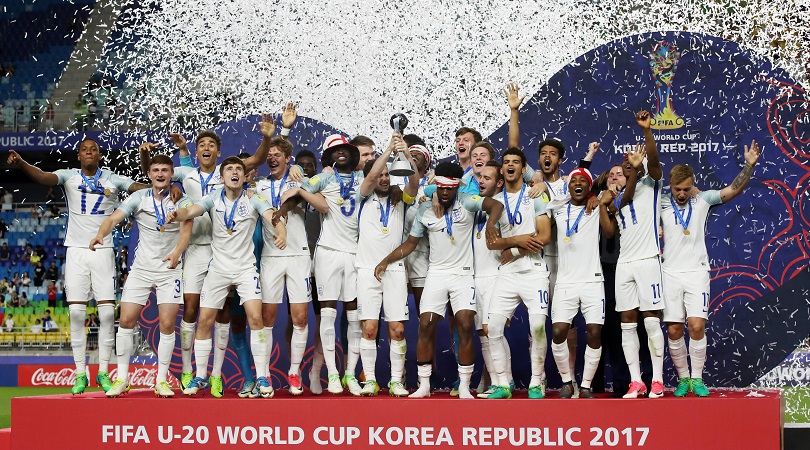
England won the Under-17 and Under-20 World Cups in 2017, and if those players are given game time at club level to aid their progression, the senior squad could enjoy an influx of talent ahead of 2022.
Paul Simpson was the coach of the successful England U20 team, and is optimistic. “Over the last nine to 12 months, we’ve seen a lot of the boys getting first-team football,” he explains. “Goalkeeper Freddie Woodman played senior football for Aberdeen, and Jonjoe Kenny made first-team appearances for Everton. It’s important they’re getting these opportunities. We’re starting to see a swing in attitude, which will help in the run-up to the next World Cup.
“We’ve got some gifted young players who can take that step from development football with England into senior football, and then on to the senior international stage.”
8. Don’t be derailed by the press
Make no mistake, the tabloids would have lunged for the jugular had Colombia prevailed on penalties in the last 16. Raheem Sterling was being groomed as the nation’s fall guy, but if the Three Lions are going to finally reclaim the biggest prize of all, they’ll need players with his mercurial skill set – even if patience is sometimes required.
Keeping the press onside will help. More NFL-style media days – when every player was made available to reporters on an afternoon before the World Cup – could boost an important relationship. An open approach is building trust on both sides.
9. Continue to eliminate squad rivalries
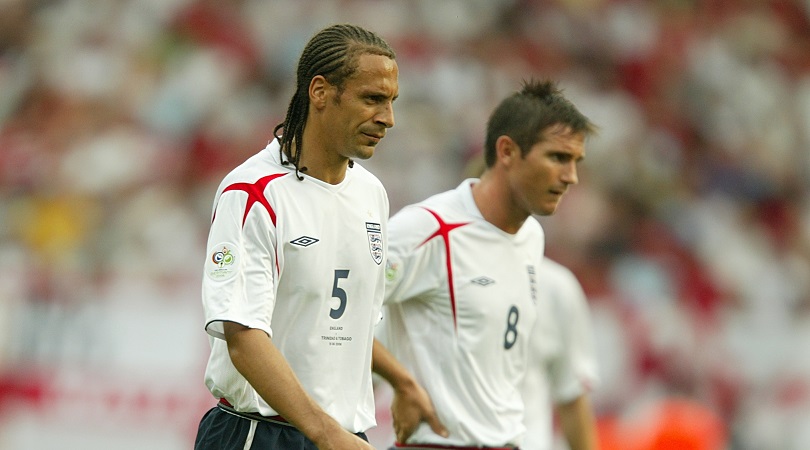
Earlier this year, Frank Lampard and Rio Ferdinand spoke about intense club rivalries that affected England during the Golden Generation, as did Emile Heskey in the latest issue of FourFourTwo. Spain resolved emnity between Real Madrid and Barcelona stars to lift the 2010 World Cup, so the Three Lions will need to stay free of such club antipathy to go all the way.
“I know Lampard and others have spoken about cliques in the England squad when we were playing, but for me the problem was blown out of proportion,” insists Carragher. “There was never a ‘this group doesn’t like that group’ situation, and we’d all played together in youth football. I was room-mates with Lampard for the U21s.
“That said, there was a problem with the way players talked to each other, and you wouldn’t open up about things at your club to someone else. I wouldn’t be asking Gary Neville how United trained, or what Alex Ferguson was like. If we’d shared more, it might have helped the team.
“I think it’s changed, and for the better. This England squad were like ‘Club England’ – that’s a hard thing to achieve at international level. The club mentality is there, thanks to Southgate. He’s been U21 coach and knows a lot of them well. He’s done a great job bonding them together, and I think that’s helped to eliminate those rivalries.
“I hope it continues. Part of it might be down to the fact that many of the England players aren’t from the top clubs. There are a lot of players from clubs in the middle of the table, and that reduces tribalism.”
10. Be patient

The ‘It’s Coming Home’ memes were enjoyable over the summer, and – a rarity among fans who deal in absolutes – also pleasantly self-aware.
The problem remains whether the genie can now be put back in the bottle, and perspective restored. A gradual evolution towards Qatar 2022 was always the FA's plan, but the Three Lions delivered early. It’s going to be tough not expecting magic from a group that nearly got to a World Cup final – say, when it’s 0-0 midway through the second half against Estonia on a wet Wembley evening.
Admirable though they are, this side aren’t going to win every qualifier 7-0. Lack of expectation freed England to finally play with boldness in Russia, two years after pressure crippled them at Euro 2016. Keeping it that way will require restraint, but will surely help.
11. Gain top-level experience in defence
England had some belting players at Euro '88: Beardsley, Barnes, Lineker. But English clubs were still banned from Europe, and when Marco van Basten took on a raw Tony Adams, it showed. Three decades on, Mandzukic vs Stones had a very similar outcome. None of England’s back three have been Champions League regulars at centre-back, but that should have changed by 2022.
12. Don’t do a fly-on-the-wall documentary
England were on a high after reaching the semi-finals of the 1990 World Cup, but it all came crashing down. The Three Lions didn’t even make USA '94, with their abysmal qualifying campaign the subject of a Channel 4 documentary chronicling the full extent of manager Graham Taylor’s despair.
“I don’t know how they got the approval to produce a fly-on-the-wall documentary about England in the first place,” says former Aston Villa winger Tony Daley, who played for his country under Taylor.
“Let’s face it, there’s not a hope in hell of that happening today. It’s all about portraying a positive image in football, but back then it was a real talking point in dressing rooms up and down the country.
“I worked under him at Villa, and he was brilliant for me and the club during his time there. To get that kind of access to a World Cup qualifying campaign was unprecedented. If England had qualified, things may well have turned out differently, but I’m pretty sure Gareth Southgate won’t be planning a repeat in the run-up to 2022.”
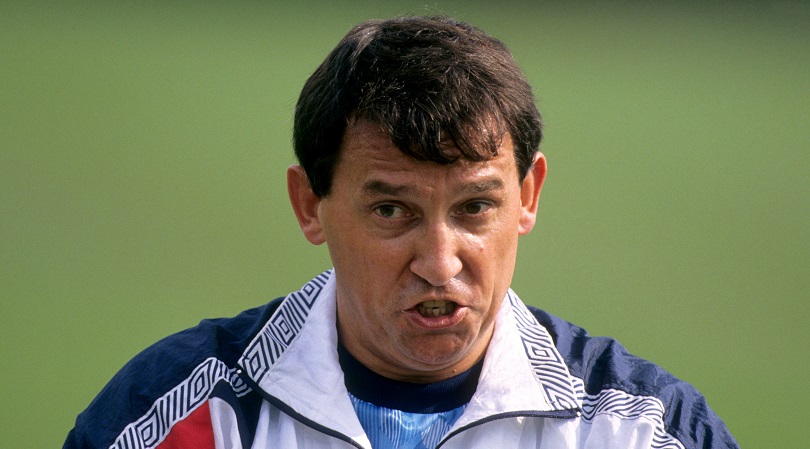
13. Benefit from the Bundesliga
Few England players have experienced playing their club football abroad in recent times, but youngsters Ademola Lookman and Reece Oxford benefited from loan spells in Germany last season, Reiss Nelson is thriving on loan at Hoffenheim, and 18-year-old Jadon Sancho has been turning heads at Borussia Dortmund.
“In the past, senior Bundesliga figures told me that trying to bring in young English players was almost impossible, because of the big wages they earned in England and their reluctance to be paid less in Germany,” says former England striker Tony Woodcock, who enjoyed success in the Bundesliga at Cologne. “I think we’re now seeing a growing realisation that first-team football in Germany can open a lot of doors for young English players. Sancho and Lookman have gone there in the last 12 months, and I think we’ll see more and more.
“From the players’ point of view, I’m not sure there’s anywhere better to expand your experiences as a footballer. Taking yourself overseas as a teenager makes you grow up pretty fast. But on the pitch, you’re not only up against some of the world’s best players and in front of some of Europe’s biggest crowds – you’re also experiencing different cultures and playing styles. If these guys aren’t getting any games in England, there's nowhere better for them to go.”
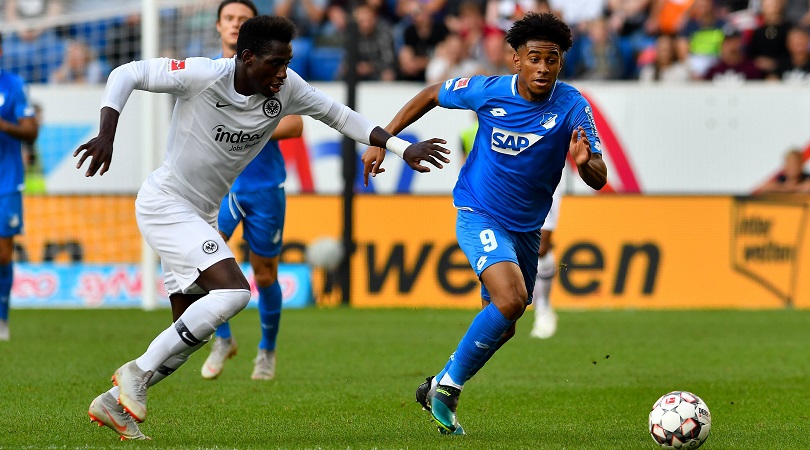
14. Please gamble responsibly
A Liverpool-style ‘Swarm!’ approach led to chances galore in England’s World Cup group games, but that attacking play occasionally disappeared when the going got tough: late on against Colombia, and in the second half against Croatia.
The confidence to keep committing players forward is essential, which might be a job for England’s shrinks. Don’t drop back; gamble on glory.
15. Retain that round thing
Even in the winter Qatar should be fairly balmy, so ball retention is key. One of England’s major issues is wilting later in tournaments, like teenage vegans at a barbecue. That infamous lack of knockout goals isn’t just because the opposition improve, it’s because English players get flaky after hours of haplessly chasing shadows.
Southgate’s gamble on less experienced but more ball-comfortable defenders initially raised a few eyebrows; now quickly-frustrated home fans need to give them time to refine that patient, probing approach.
So please, no barking at John Stones to lump it upfield when England are one down. Let the other mob press and wear themselves out.
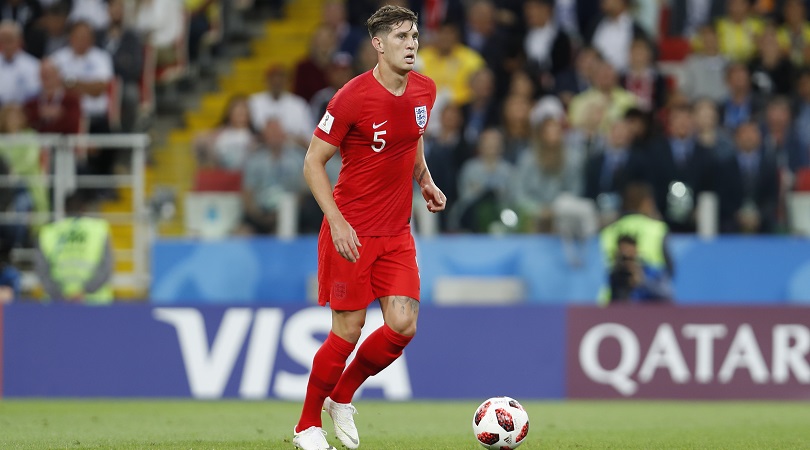
16. Get the fans on the plane
The pre-tournament vibe this summer largely focused on discouraging England supporters from travelling, only for certain media to then complain that not enough of them bothered going: it’s a no-win situation. Despite all of the alarmism, Russia turned out to be pretty hospitable. And Qatar? It may not be Ibiza but no doubt their charm offensive will crank up a few notches, too.
England benefit hugely from a large, good-natured support: it’s one big celebratory feedback loop when everything goes well. The final in four years’ time is at the brilliantly named Lusail Iconic Stadium – see you all there, then.
17. Keep the inflatable unicorns
If there’s one thing that definitely helped England to reach the semi-finals of the World Cup, it was the day the players spent racing on inflatable unicorns in the swimming pool. OK, so there was probably a bit more to it than that, but the unicorns were indicative of a more relaxed approach.
“To be honest, the blow-up unicorns would probably have been a bit tame for us back then,” laughs Euro '96 star Anderton. “Times change – I can’t imagine these boys embracing the dentist chair! Personally, I think the way the team has bonded has been the most impressive thing Southgate has achieved. If that carries on, why can’t we go and win it in 2022? The unicorn thing showed these boys actually got on really well and genuinely liked each other.
“It’s all about creating a club atmosphere and making playing for your country fun, which is how it should be. It’s what you dreamed about doing as a kid, so why should you walk onto that pitch with any doubt that this is the greatest honour you can have as a player?”
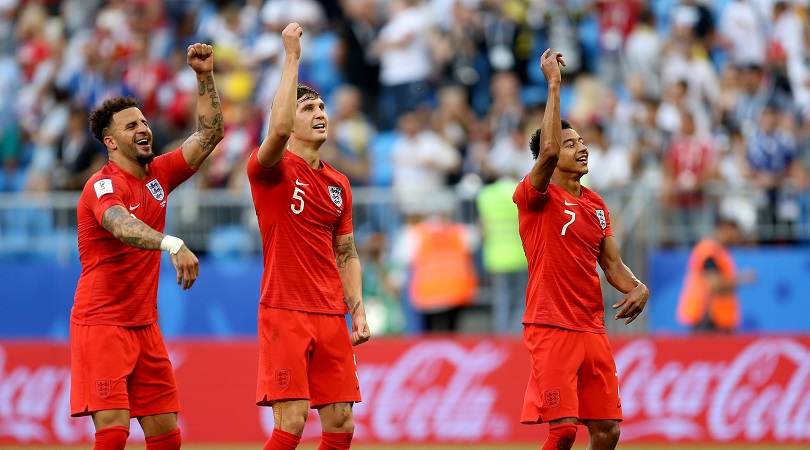
18. Surround England’s young talent with the right people
One thing that stood out during their World Cup journey was the sheer likeability of England’s players. In previous incarnations, supporters of rival teams might have felt vaguely sick at the thought of John Terry, Ashley Cole, Rio Ferdinand or whichever other figure they loathed holding the World Cup trophy aloft – that sentiment is largely gone from a set of lads you’d happily introduce to your gran.
Southgate’s gentlemanly demeanour has contributed to that, as has an academy system that puts an emphasis on producing more rounded human beings. Those players must now be encircled by people giving them the right advice to keep them grounded.
19. Find a playmaker
Watching ageless man-witch Luka Modric run rings around England’s midfield was a sobering antidote to all of the pre-semi hoopla, but perhaps the Three Lions should have seen it coming.
England lack the same sort of midfield playmaker: Jordan Henderson has the will but not the skill, while Jack Wilshere appeared nailed-on but fell apart. Southgate isn’t afraid of blooding raw youth: time to give the promising Phil Foden – maybe also Harry Winks - significant game time?
20. Win the club vs country battle
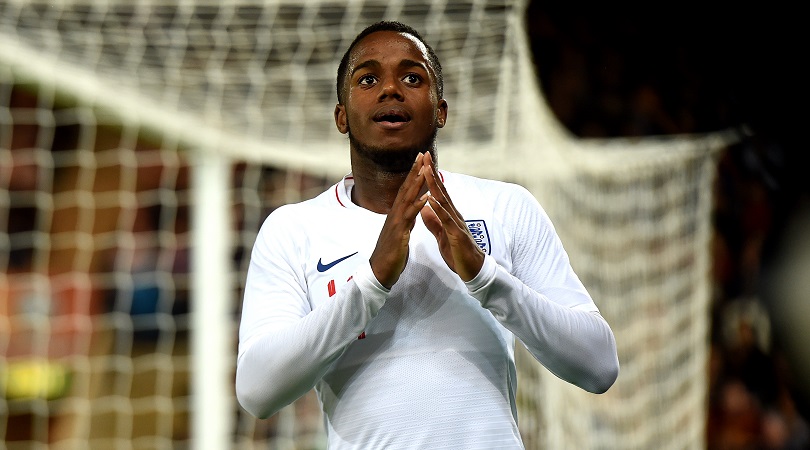
The FA’s review into what had previously gone so wrong with the national team came to a clear conclusion: while countries like France were allowing players to progress through their ages groups – with very obvious results – club vs country concerns were hampering the Three Lions.
Southgate’s commitment to a similar setup has paid partial dividends, but the conveyor belt needs to keep moving. The fact that players such as Foden, Sancho and Ryan Sessegnon couldn't get club clearance to play for England at the recent Under-19 Euros was depressing. England lost 5-0 to France in their decisive group game, but more importantly, vital experience was lost.
“It’s massively important that we keep seeing our best young players performing in international age group football,” says Paul Simpson. “But we also need UEFA to be sensible when they’re scheduling tournaments. We had 33 players withdraw from the U19 European Championship but it wasn’t just England – it was countries across the board.”
21. Don’t worry if qualifying doesn’t go smoothly
We don’t expect things to start going Graham Taylor or Steve McClaren levels of bad, but England actually need to get to Qatar first. However, no one should panic if things aren’t plain sailing when World Cup qualifying kicks off. Germany were dominant en route to Russia 2018, winning all 10 games, but were back home before das postcards. France drew 0-0 at home to Luxembourg but went on to win the thing.
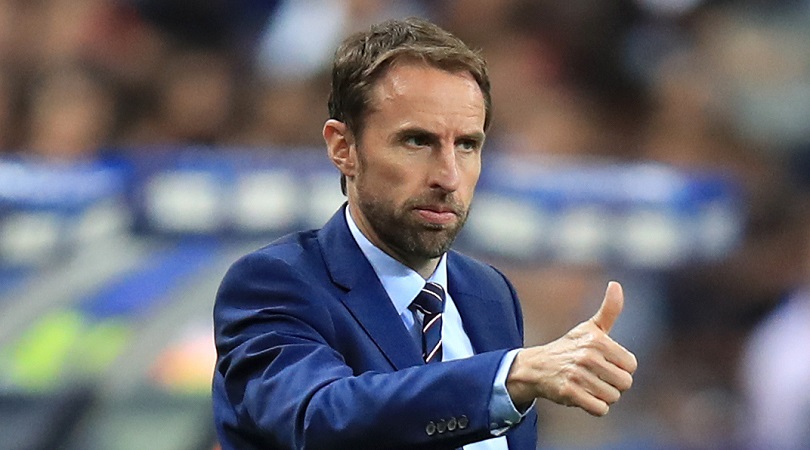
22. Avoid burnout
Tiredness has long been a problem whenever a major tournaments rolls around, and the 2022 World Cup could prove even more challenging. The competition takes place between November 21 and December 18, in the middle of a hectic Premier League campaign. Ensuring the squad is given sufficient time to rest before the big kick-off is crucial.
“The lead up to Qatar 2022 does look difficult,” says Carragher. “There were a few times in my career when fixtures piled up and it was tough – it can burn players out. It’s harder for the offensive players, who rely on sharpness more than defenders, but it takes its toll physically. It’s also hard mentally as you have to get yourself up for a match, and then you have the comedown afterwards. Pre-season tours are something that might have to be looked at, as they add a lot to players’ schedules.”
Solving the issues will require some negotiation, making co-operation between the FA and Premier League more important than ever. England edged closer to World Cup glory this year: football really could be coming home in 2022.
This feature originally appeared in the October 2018 issue of FourFourTwo. Subscribe!
